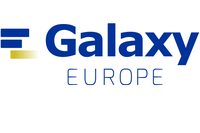European Galaxy Server in Freiburg
For more than 18 years, the Galaxy Project (https://galaxyproject.org) has worked to solve key issues challenging modern data intensive research: the ability of researchers to access cutting-edge analysis methods, to share analysis results transparently, and to precisely reproduce complex computational analyses. Galaxy has become one of the largest and most widely used open source platforms for the analysis of scientific data.
The Galaxy framework is an open-source platform for FAIR (findable, accessible, interoperable, reusable) data analysis that enables users to:
- Use tools from various domains that can be plugged into workflows through its graphical web interface. No programming skills required!
- Run code in interactive environments (RStudio, Jupyter...) along with other tools or workflows.
- Manage your data by sharing and publishing results, workflows, and visualizations.
- Ensure reproducibility by capturing the provenance of the information to repeat and understand data analyses.
With more than 85,000 users, the biggest European Galaxy instance is the European Galaxy Server (https://usegalaxy.eu) which is a ELIXIR-recommended infrastructure (RIR) (https://galaxyproject.org/news/2023-12-14-elixir-rir-for-galaxy-europe). Being hosted at the compute center of the University of Freiburg, the European Galaxy Server is developed and maintained by the Freiburg Galaxy Team (https://usegalaxy-eu.github.io/freiburg/people), headed by Dr. Björn Grüning (Bioinformatics, Prof. Rolf Backofen) since 2015. By free registration, users get 250GB storage and access to a huge computational infrastructure with more than 3,200 tools and workflows. Galaxy provides researchers a powerful analysis platform populated with the latest tools, reference data, and databases. Scientists from many diverse scientific disciplines run their data analysis on Galaxy, such as life science, climate science, astrophysics, and material sciences. For tool developers it provides a community-supported mechanism for deploying tools to a wide audience of users. For system administrators and engineers Galaxy provides a flexible framework they feel comfortable deploying on any infrastructure.
Together with the Galaxy infrastructure, the Galaxy Training Network (GTN) (https://training.galaxyproject.org) provides more than 380 free tutorials from over 30 scientific topics for researchers, Galaxy administrators and developers for data analysis, tool development and workflow creation. Each e-learning tutorial comes with introductory slides, a detailed step-by-step-instruction, videos and recordings, and sample data. It is easy to learn about e.g. RNA-Seq data analysis, climate data analyses, metagenomics, R, and python programming. For educators Galaxy provides a training infrastructure for delivering interactive, hands-on training workshops (https://usegalaxy-eu.github.io/tiaas) for audiences of different sizes.
The Freiburg Galaxy Team and the European Galaxy Server are supported by the Ministry of Science, Research and the Arts Baden-Württemberg (MWK) within the framework of LIBIS/de.NBI Freiburg. They are partners of NFDIs (e.g. NFDI4DataPlant (https://www.nfdi4plants.de), NFDI4Bioimage (https://nfdi4bioimage.de/en/start)) and the BMBF-funded project Deutsches Kompetenzzentrum Cloud-Technologien für Datenmanagement und -verarbeitung (de.KCD). Furthermore, they are partner of different Horizont Europe EOSC projects (e.g. EOSC OSCARS (https://oscars-project.eu), EOSC4Cancer (https://eosc4cancer.eu)), and many other big initiatives, such as ELIXIR projects (https://elixir-europe.org/about-us/how-funded/eu-projects), the European Genomic Data Infrastructure (GDI) (https://gdi.onemilliongenomes.eu), Biodiversity Genomics Europe (BGE) (https://biodiversitygenomics.eu), BY-COVID (https://by-covid.org), and AgroServ. Galaxy itself is used by more huge European projects, e.g. OpenAire (https://www.openaire.eu). Since September 2022, the Freiburg Galaxy Team is coordinating and leading the Horizont Europe EOSC EuroScienceGateway project (https://eurosciencegateway.eu) which will leverage a distributed computing network across 13 European countries, accessible via 6 national Galaxy server, facilitating access to compute and storage infrastructures across Europe as well as to data, tools, workflows and services that can be customized to suit researchers’ needs.
Contact:
Dr. Björn Grüning
Head of Freiburg Galaxy Team
Bioinformatics
Department of Computer Science
University of Freiburg
E-Mail: gruening@informatik.uni-freiburg.de
Dr. Anika Erxleben-Eggenhofer
Project Management, Teaching and Training Coordination
Bioinformatics
Department of Computer Science
University of Freiburg
E-Mail: erxleben@informatik.uni-freiburg.de
Kerstin Steiger-Merx
Representative PR/Marketing
Faculty of Engineering
University of Freiburg
Tel.: 0761/203-8056
E-Mail: steiger-merx@tf.uni-freiburg.de

